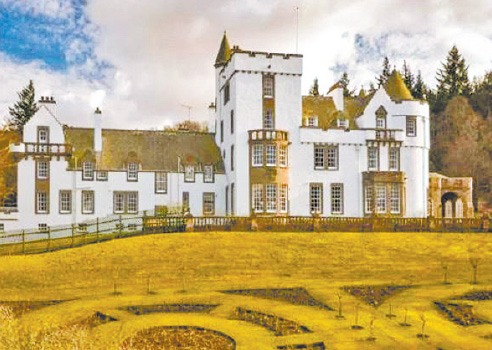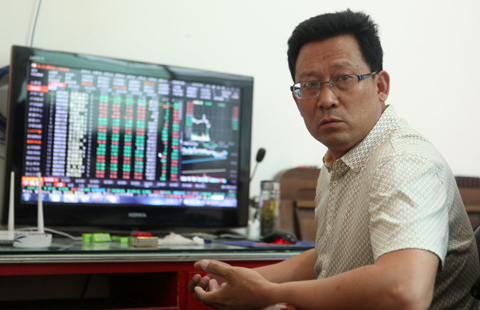Living their own fairy tales
By Wu Yiyao (China Daily) Updated: 2015-06-03 09:02
 |
|
Built to last, Kinpurnie Castle is located in a rural part of Scotland in the United Kingdom. Buying a castle or chateau in Europe has become attractive to China's wealthy investors. [Photo/China Daily] |
"A castle may tick all the boxes for those who can afford to purchase and maintain an estate with long history," the property firm said.
There are about 67,000 Chinese nationals worth more than 100 million yuan ($16.1 million) and roughly 17,000 with an estimated fortune exceeding 500 million yuan, according to an April report released by China Minsheng Bank and the Hurun Research Institute.
"With so much money, investors can diversify their portfolios, not only in terms of what they buy but also in terms of where to buy," Sherry Wang, an overseas investment researcher based in Shanghai, said. "Castles may meet those demands for buying different properties in different countries."
Travel has also broadened the horizons of China's wealthy, and they have started to research old stately homes in Germany and the United Kingdom as well as France.
Many are known in the tour guides as "hidden gems", located in rural backwaters with stunning views and picturesque countryside. Even China's professional class has been left enthralled by these monuments to history.
"I once stayed in a boutique hotel which was a small caste in the north of England-it was like a dream come true from my childhood," Sun Ying, 24, who works in the legal profession for Shenhong Trade Ltd in Shanghai, said.
The trend of buying dream chateaus and spectacular castles started in the late 2000s with properties in the vine-growing region of Bordeaux becoming extremely popular. The UK has also attracted Chinese buyers searching for that special country estate, as well as the United States.
Naturally, prices vary from property to property and can run from hundreds of thousands of dollars to seven figures, depending on the location and the condition of the building.
Hurdles
Other factors also have to be taken into account such as national heritage protection laws, which cover planning and building rights.
Obtaining planning permission to renovate these properties can be complicated and time consuming. Even so, there are always wealthy overseas buyers waiting in the wings.
One affluent Chinese businessman, who did not wish to disclose his identity, bought a Jesuit Retreat House, which was built for the Roman Catholic order, on New York's Long Island for an estimated $40 million in 2013.
- Living their own fairy tales
- Vale to expand iron ore output with eye on China
- Hisense banks on innovation in battle against global competitors
- COFCO commits to Belt and Road Initiative
- Riding the winds of change in China
- Russia bets on inland plants
- Cruise firms see little impact from tragedy
- Revamp at Lenovo mobile

















